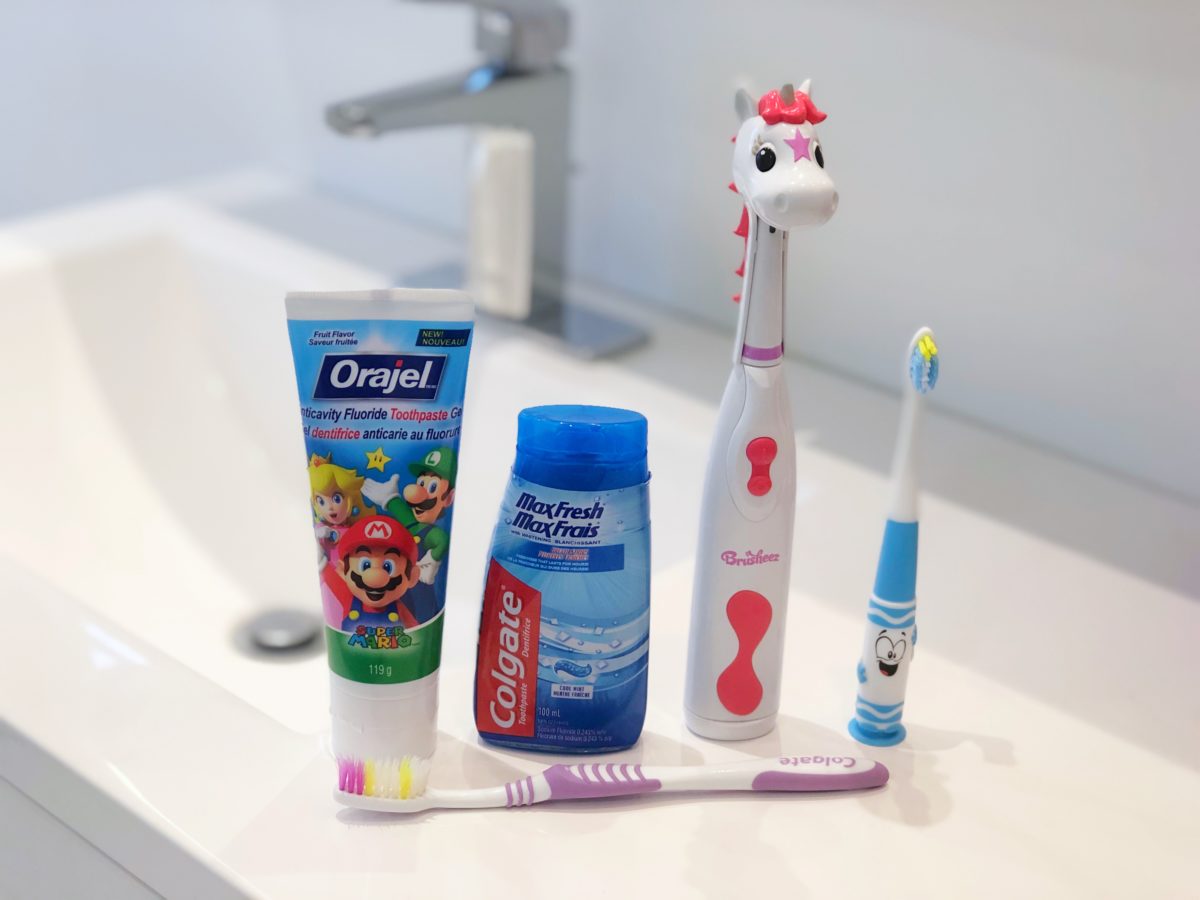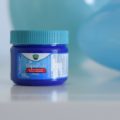When we talk about health, we often focus on clean eating and regular exercise. While it’s incredibly beneficial to eat well and move more, it’s also critical to understand the importance of looking after your teeth and gums. A healthy smile will make you feel confident, but good oral health is also linked to a reduced risk of serious health issues, including heart disease. If you’re keen to ensure your family steers clear of dental issues, especially since heading to the dentist right now for a cleaning ins’t possible, here’s a comprehensive guide to help you protect your pearly whites.
Brushing tips
A good daily oral hygiene regime is the best defense against dental disease. Brushing is designed to eliminate harmful bacteria and remove food debris, and it plays a vital role in preventing the formation of plaque. Plaque is a colorless substance, which sticks to the teeth and the gum line. Plaque forms when bacteria, saliva and food particles combine, and it is the most significant risk factor for decay and gum disease. The bacteria in plaque release acids, which attack the enamel and irritate the gums. Dental experts recommend brushing twice a day, once in the morning and once in the evening. When you clean your teeth, cover every surface of each individual tooth and try to be gentle. If you brush too aggressively, this can damage the enamel coating. Electric toothbrushes are proven to remove plaque more effectively than manual brushes, but you can achieve a deep clean with a normal brush. Brush for at least 2 minutes each time and clean your tongue.
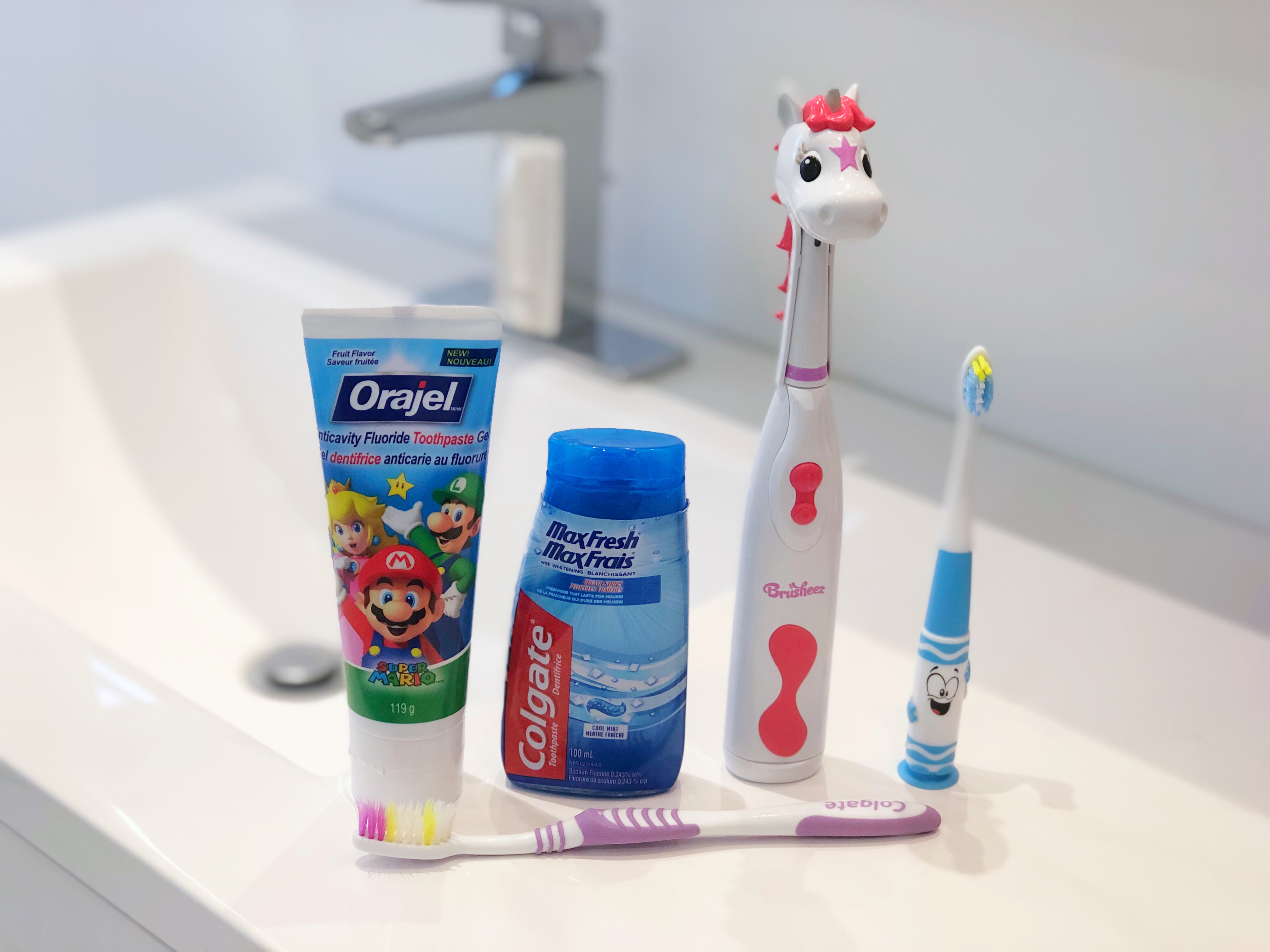
If you have young children, try and get them into the habit of cleaning their teeth in the morning and evening from an early age. Supervise them, help them perfect the technique, and try and make the process fun. Many parents have trouble persuading kids to brush their teeth, and tantrums are common. To reduce the risk of tears at bedtime, you can buy child-friendly dental products, make up games related to brushing the teeth and brush along to a song. It’s also hugely beneficial to talk to your kids about why it’s important to clean the teeth and to set a good example. If your children see you brushing your teeth, they will be more likely to follow suit.

Being mouth aware
Many of us don’t hesitate to take a trip to the doctor if we feel unwell or we notice abnormal symptoms, but when it comes to seeing a dentist, we are less proactive. Oral diseases usually get worse with time, so it’s best to seek advice as soon as you develop symptoms, or you notice visible changes in your mouth. If you have severe dental pain, you think you might have cracked or chipped a tooth, your gums are bleeding when you brush your teeth, or you have ulcers that are taking a long time to heal, see your dentist.
There are several reasons why you may be experiencing tooth pain, including infections and abscesses, dental injuries and problems linked to your wisdom teeth. The wisdom teeth are the last teeth to erupt, and often, this means that there is a lack of space in the jaw. If there isn’t enough space for the teeth to grow normally, they start to push against the neighbouring teeth, and this can cause them to become impacted. We don’t need our wisdom teeth, and if they are causing problems, dentists usually recommend extracting them. You can find details of affordable wisdom teeth removal online, and your dentist will be able to explain exactly what the procedure involves and what you can expect after treatment. If dental pain is linked to damaged or broken teeth, your dentist may suggest restorative treatments, for example, crowns and fillings. Bleeding gums are a sign of gum disease. Other symptoms include swelling, redness and increased tenderness in the gums. Gum disease progresses, and it can cause permanent damage to the bone tissue that supports the teeth. This is why it’s so crucial to see your dentist if you do spot early warning signs.
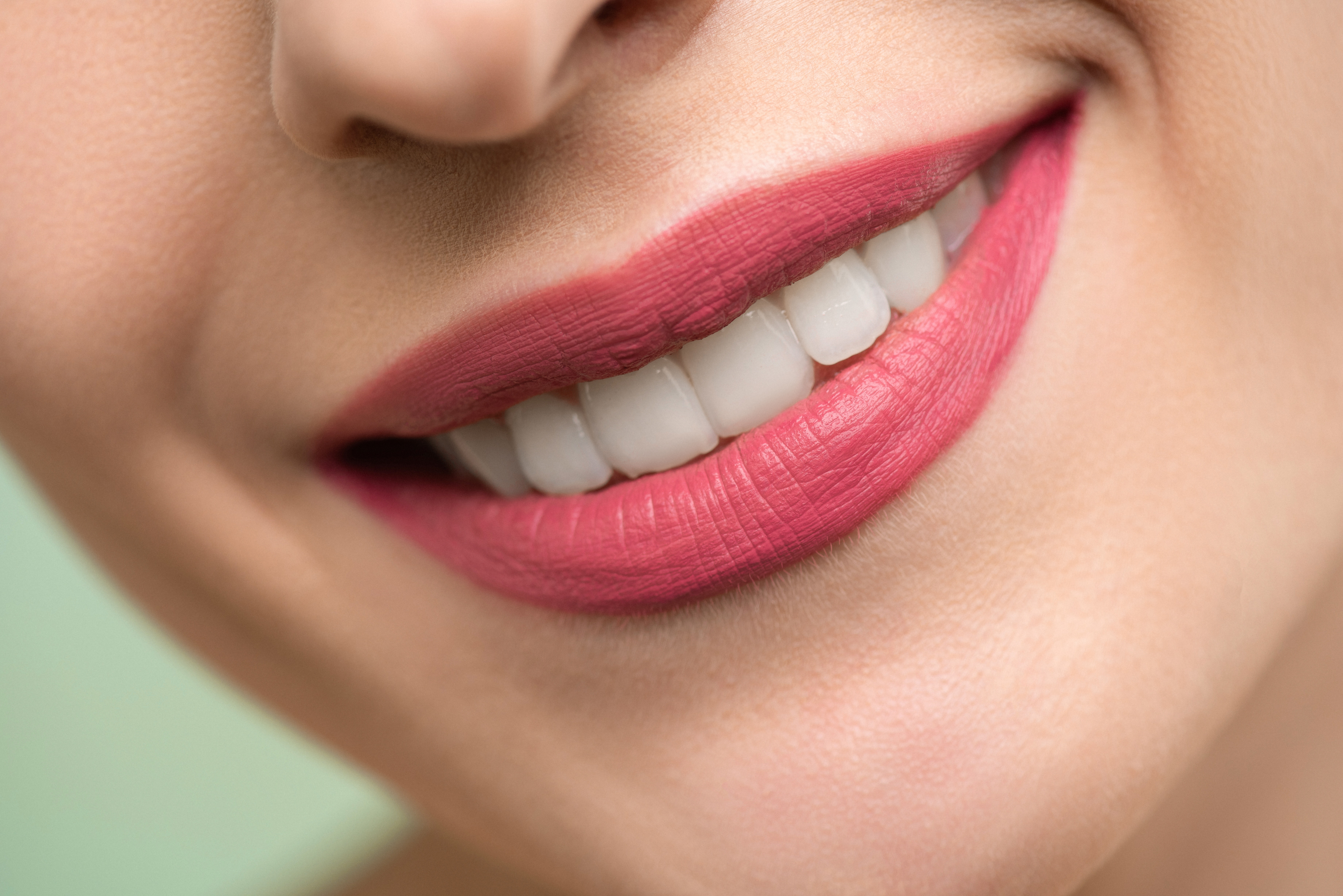
Picture courtesy of https://www.pexels.com/photo/woman-with-red-lipstick-smiling-3762453/
Keeping an eye on your eating habits
Your diet has a significant impact on your oral health, but it’s also beneficial to think about when you eat. As well as making an effort to eat healthy foods and to avoid sugary and acidic foods and drinks, dentists also advise patients to try and avoid snacking. When you eat, the bacteria in your mouth feed, and this causes them to release acids, which weaken the tooth enamel. It takes time for the enamel to remineralize, and if you’re eating throughout the day, the teeth never have a chance to recover fully. Once the enamel is worn, it’s not possible to replace or restore it, and the teeth will be vulnerable to decay. Instead of grazing, aim to eat three meals a day. If you do get hungry between meals, or your kids need a snack, stick to foods that are low in sugar and avoid acidic foods and drinks. Healthy options include raw vegetables, whole-grain crackers and cheese. Fizzy drinks and shop-bought smoothies and juices pose a risk to oral health because they are acidic and they often contain a lot of added sugar. One can of cola contains 9 teaspoons of sugar and even diet versions are harmful due to their low pH value.

Picture source: https://www.pexels.com/photo/background-bright-candy-chewy-539447/
Seeing your dentist
Prevention is always better than cure and going for regular check-ups is one of the best ways to keep your smile in check. Ideally, children should go to the dentist every 6 months from the age of 12 months old, and adults should visit every 6-12 months. Frequent checks reduce the risk of gum disease and tooth decay, and they also play a crucial role in the detection of early symptoms of oral cancer in adults.
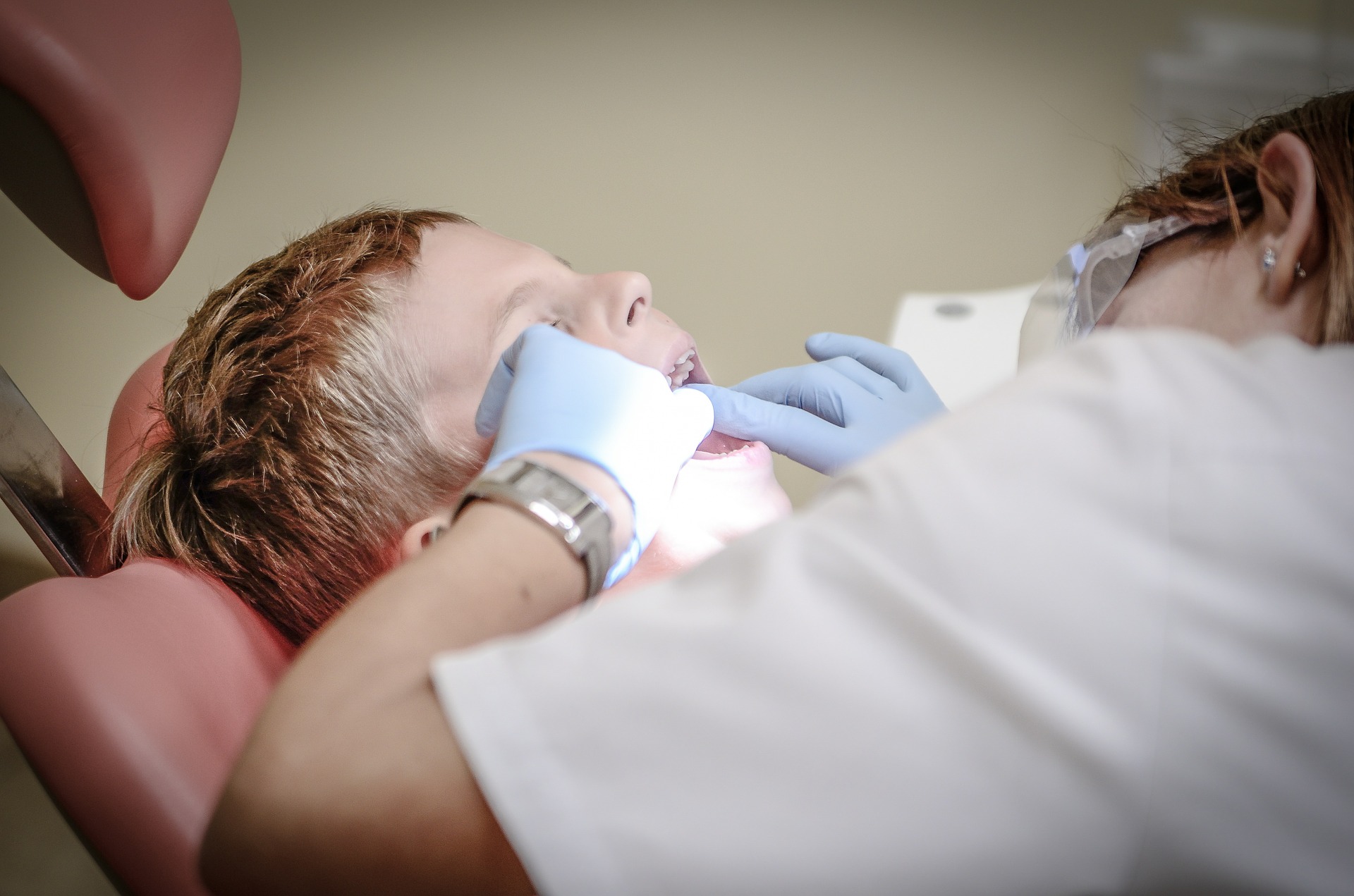
Image from https://pixabay.com/photos/dentist-pain-dental-care-medicine-428646/
A bright, healthy smile won’t just make you look and feel great. Looking after your teeth and gums will also improve your general health and reduce the risk of oral disease. Take these tips on board for sparkling smiles all round.

